core
Latest
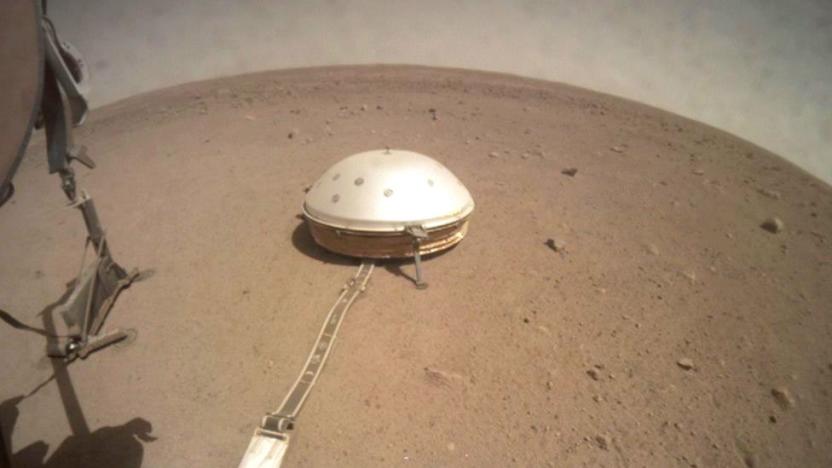
NASA's InSight probe reveals the first detailed look at the interior of Mars
NASA's InSight lander arrived on Mars in 2018 to learn about its interior by monitoring "marsquakes," and now the project is starting to really pay off.

2020 put us on the edge of a processor revolution
Intel put out another high-end chip, 10th-gen “Comet Lake”, which added a few cores but is still based on its aging 14nm transistor design, and AMD countered with Zen 3, an improved version of its desktop architecture that now goes up to 16 cores. While Zen 3 didn’t increase core counts or clock speeds dramatically, it did deliver a big boost in instructions per-clock without increasing power consumption.
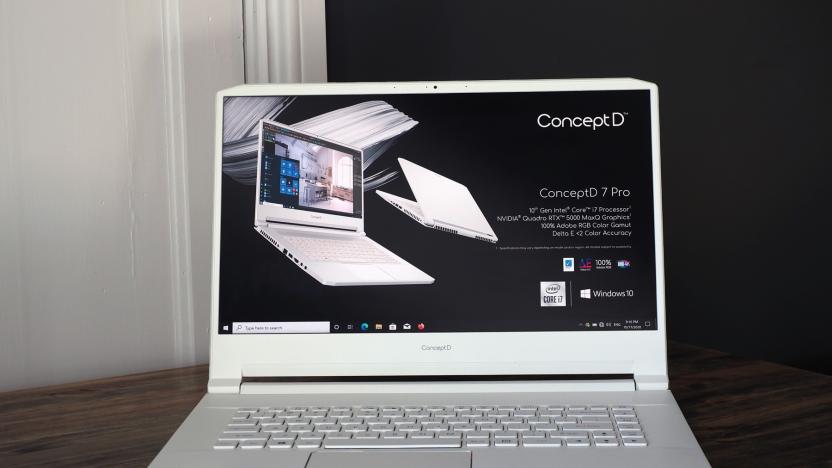
Acer updates its ConceptD 7 laptops and adds a new desktop model
Acer's newest ConceptD mid-tower is a good mid-level pro desktop. The 7-series laptops, however, are the real eye-catching machines.

ASUS adds new Intel chips to its Zephyrus gaming laptops
ASUS has refreshed its line of gaming laptops with new 10th Generation Intel Core processors, NVIDIA RTX 2070/2080 Super graphics and a bunch of other features designed to make gaming and content creation slicker and smoother. First up, the new Zephyrus S17 (pictured), which comes with a 17.3-inch display with super narrow bezels in an 18.7-millimeter-thin chassis. A 300 Hz refresh rate and 3ms grey-to-grey response time means the display is lightning fast, and it comes with Pantone-validated color accuracy as well.
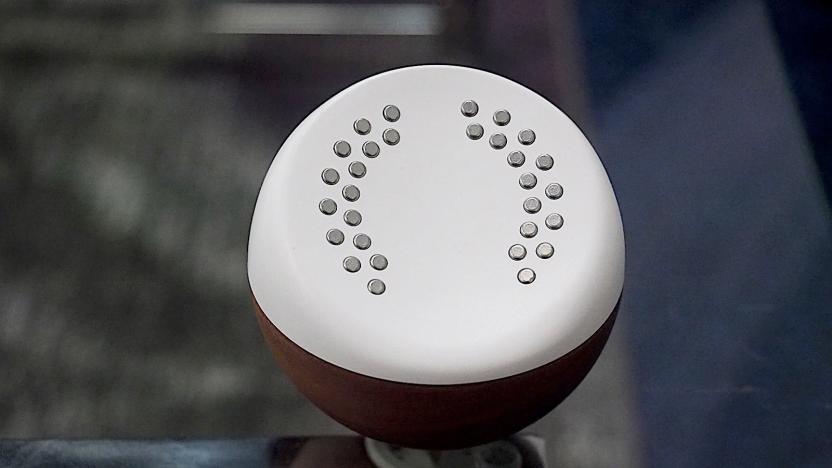
Core brings Fitbit-style tracking to your meditation sessions
Being a tech journalist is a stressful job. And CES is the most stressful time of year. So naturally, I'm looking for any opportunity I have to take a couple of minutes, breathe, relax and just focus on myself. Which meant the first thing I did when I rolled into Unveiled -- basically the officially kickoff party for CES -- was wander over the booth for Core, a device designed to help you meditate.

Intel's Performance Maximizer tool overclocks CPUs with one click
Intel has launched a new feature designed to make overclocking more straightforward. Called the "Intel Performance Maximizer," the tool examines your processor's individual settings, then uses what Intel calls "hyper-intelligent automation" to tweak them for a performance boost. Basically, it's overclocking without having to fiddle around with custom settings in BIOS yourself.

Intel announces six new ninth-generation Core processors
Intel's slightly subdued CES 2019 keynote began with the announcement of six new chips for desktop users. The company's Gregory Bryant took to the stage to say that the company was launching a sextet of ninth-generation Core processors. These will range from the low-end Core i3 through to the Core i9 for power users. The company has only revealed details for one of the six chips that will be released, the 14nm Core i5-9400, which it expects to be available at the end of the month.
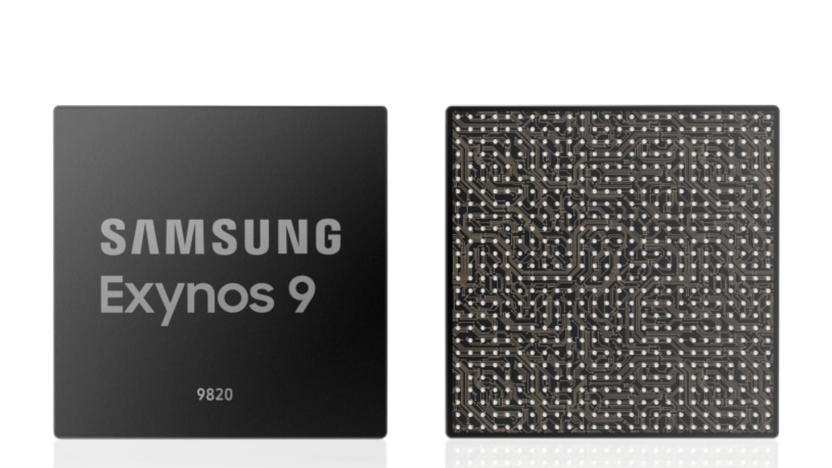
Samsung's new phone processor has hardware for on-device AI
Samsung has announced its latest system-on-chip (SoC), the Exynos 9 Series 9820 processor, geared specifically towards managing on-device artificial intelligence applications. Unlike its predecessors, this processor contains an AI-accelerator, or NPU, that means AI-related processing can be carried out directly on the device, rather than sending the task to a server. This adds up to seven times faster performance.
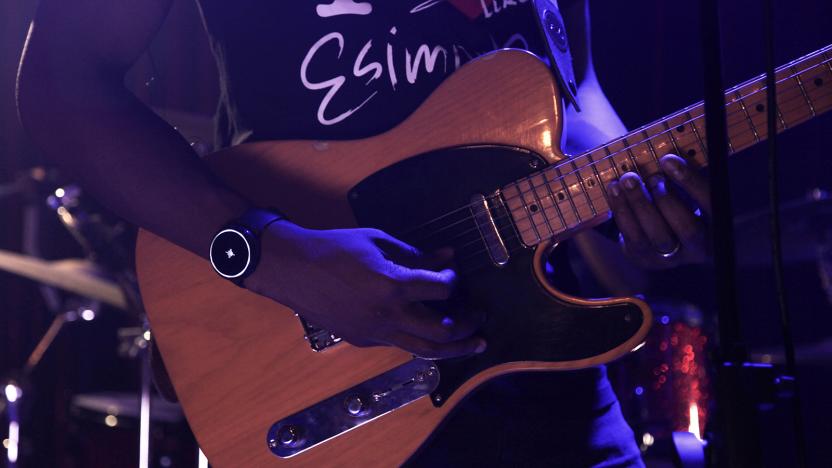
Soundbrenner watch includes a metronome, tuner and decibel meter
Soundbrenner is far from a household name in the music industry, but having apparently sold over 50,000 Pulse wearable metronomes with endorsement from notable musicians, this Hong Kong startup isn't doing so bad. Today, the company hopes to make a bigger bang with a follow-up model. Using the original Pulse as the foundation, the new Soundbrenner Core adds three functionalities in the hopes of making life easier for musicians: It's also a watch, a tuner and a sound level meter. "We see ourselves as one of the few players in the music-making space... that solve real problems," said Soundbrenner CEO Florian Simmendinger. "Our goal is to create a must-have companion device for musicians, from beginners all the way to professionals."
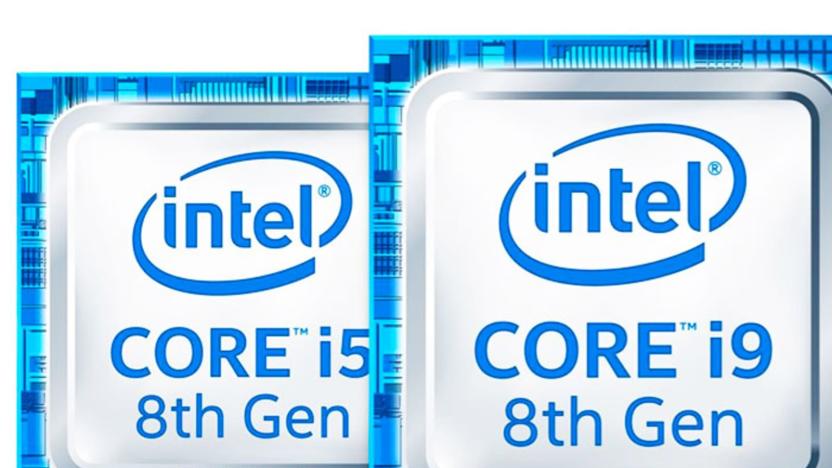
Intel admits 'tight' supply for cheap PC chips, focuses on high-end
In an open letter, interim Intel CEO Bob Swan admitted the company's supply of CPUs for the "entry level" PC market is "undoubtedly tight," so if you have trouble finding a cheap laptop for the holiday season then you know why. Between consumers upgrading their PCs, gaming and commercial systems he said Intel expects "modest" growth in PC shipments, while it will focus on delivering higher-end Xeon and Core CPUs. We'll see if this creates an opportunity for competitors like AMD and Qualcomm, especially as they bring laptops to market with longer-than-ever battery life. To help improve supply, Intel is investing $1 billion on current 14nm production lines in in Oregon, Arizona, Ireland and Israel. As far as its repeatedly-delayed "Cannon Lake" 10nm CPU technology that saw a limited debut earlier this year, the CEO said "yields are improving" and that the company expects to have volume production at some point in 2019.

Intel's latest Core processors have serious security flaws
Intel has confirmed previous reports that its recent PC, internet of things and server chips are vulnerable to remote hacking. The problem is with the onboard "Management Engine," which has multiple holes that could let remote attackers run malicious software, get privileged access and take over computers. The vulnerability affects sixth, seventh and eighth generation Core chips (Skylake, Kaby Lake and Kaby Lake R), along with Pentium, Celeron, Atom and multiple Xeon chips.
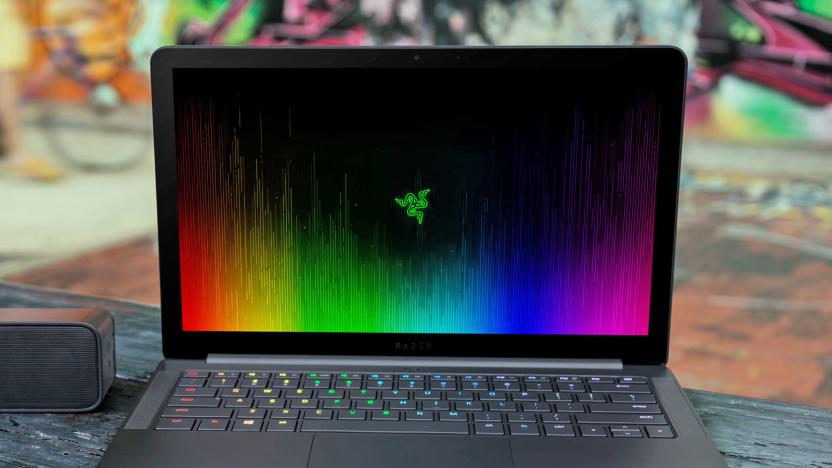
Razer's Blade Stealth laptop now packs a quad-core processor
Like the thought of Razer's Blade Stealth ultraportable, but wish it had a bit more oomph for multitasking? You're getting your wish. Razer has released a version of its 13-inch ultraportable with a quad-core 8th-generation Core i7 processor (namely, the 1.8GHz i7-8550U) inside rather than the usual 7th-gen dual-core chip. This doesn't magically turn it into a gaming machine -- you'll still need a Core enclosure for that -- but it could make all the difference when editing a video or juggling numerous apps. The CPU update also gives you an extra hour of estimated battery life (10 hours total), so you're more likely to make it through a long day.
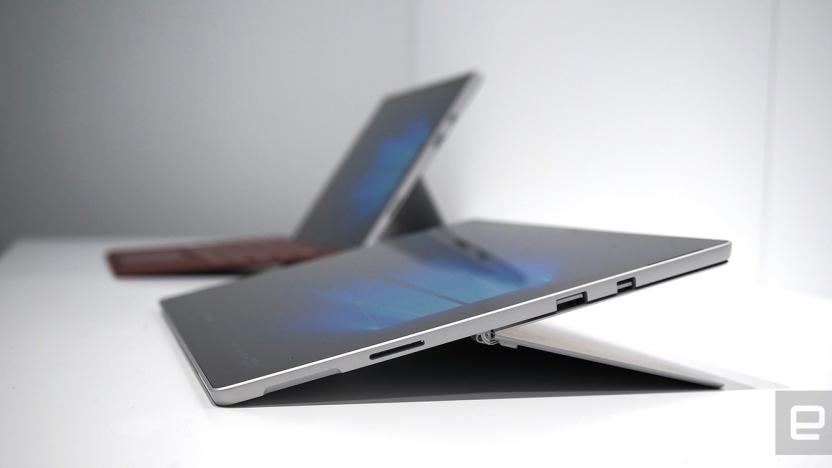
Microsoft made the Surface Pro both lighter and quieter
Microsoft has mostly left the Surface Pro line untouched since late 2015, but the company is finally giving it a long overdue refresh today. Announced at an event in Shanghai earlier, the new machine -- now simply dubbed Surface Pro -- packs Intel's 7th-gen Core processors (Kaby Lake; m3, i5 and i7 flavors), an enhanced 12.3-inch PixelSense display (2,736 x 1,824) plus optional LTE Advanced radio due later this year. Microsoft calls this "the lightest, the best sounding, the fastest and the quietest Surface Pro ever," and the company was keen to claim that its own machine is 1.7 times faster than the iPad Pro.

Pebble adds Alexa's voice controls to its upcoming Core wearable
Pebble announced its 3G-enabled Core device just last week, and even though the gadget won't ship until 2017, the company is already adding features. Amazon's Alexa virtual assistant will be available on the wearable exercise accessory, bringing voice controls to the iPod Shuffle-esque device. With the Core, Alexa can still handle tasks like playing music, reading news headlines, shopping on Amazon, ordering food, controlling smart home tech and more. In terms of more Pebble-specific chores, the virtual assistant can read your Pebble Health summary to keep you up to speed on your daily stats.

Intel's 7th generation of Core CPUs are coming later this year
Besides its $1,723 10-core Core i7 Extreme Edition processor, Intel just teased some other chip news during its keynote presentation at Computex. There aren't many details available, but the company confirmed the the seventh generation of its Core CPU technology will go on sale later this year. They will be joined by its Apollo Lake chips, which are a cheaper version of the current sixth-gen Skylake family. Apollo Lake should bring 4K video capability and USB-C to cheaper, 2-in-1 laptop/tablet style devices with smaller batteries. As far as the seventh generation of Core CPUs, buyers can expect support for Thunderbolt 3, and IR cameras used for features like Windows Hello's facial recognition.

Pebble's first non-watch is basically a next-gen iPod Shuffle
One of Pebble's big goals for 2016 was to focus its efforts on health and fitness. It updated its Health app to provide more-meaningful stats, and just today, it announced two new smartwatches with built-in heart rate monitors. But that wasn't quite enough. The company also wanted to make something that would let people run without their phones: It needed to have GPS and be able to play music. Unfortunately, bundling all of that functionality into a watch would make it very expensive, so Pebble didn't want to go that route. Instead, it built something entirely different. This is the Pebble Core, the company's first-ever non-smartwatch. It's an Android-powered wearable designed for runners. It has GPS so you can track your runs and -- here's the interesting part -- a built-in 3G modem that lets you stream music over Spotify. Think of it as a next-generation iPod Shuffle.

Razer's 'Core' external GPU ships in April for $500
Razer announced pricing and availability for its new Core external graphics box at GDC on Wednesday. The device is available for pre-order starting today and units will begin shipping in April. It will set you back $400 if purchased in tandem with a Blade Stealth or $500 if you buy it separately. But don't worry if you didn't take our advice and have already purchased a Blade Stealth, you'll still get the $100 discount.

Razer's updated Blade gaming laptop has a slimmed-down design
The gaming show GDC has just begun, and Razer used the opportunity to unveil the fifth generation of its popular Blade gaming laptop. The new edition will offer significant performance improvements over its predecessor from 2014, with fresh specs that include an Intel Core i7 CPU, 16GB of DDR4 RAM, a GeForce GTX 970M GPU powered by 6GB of video memory, 802.11 AC WiFI and a PCIe solid-state drive. Additionally, the machine has a 3,200 x 1,800 QHD+ display and Chroma backlit keyboard, with a slimmed-down CNC-milled aluminum case that's less than three-quarters of an inch thick and weighs just 4.25 pounds.

Razer's gaming Ultrabook lets you bring your own video card
If you're a gamer, you don't have it easy when buying laptops: You may want a sleek, lightweight Ultrabook when you're traveling, but you also want the big, powerful desktop replacement when you're home. What to do? Razer thinks you can have both. It's launching the Blade Stealth, a 12.5-inch ultraportable with some proper gaming cred. Its centerpiece is an optional Thunderbolt 3–powered dock, the Core (below), which lets you use most any modern desktop graphics card when integrated video won't cut it—if you just have to play Battlefront at max detail with a GeForce GTX 980 Ti, you can. It has Ethernet and four USB 3.0 ports, too, so you only need to plug in one cable to get all your usual peripherals.

Future PS4 games will have more power to play with
It seems the PlayStation 4 is now just a little more powerful than before. At least for game developers, anyway. None of the console's components have changed -- instead it's being reported that a seventh core has been "unlocked" in the CPU. Until now, six of the PlayStation 4's eight-core CPU have been dedicated to games, while the remaining two handle the operating system. In all likelihood, this was a conservative setup to ensure consoles ran smoothly at launch. It also gave Sony some wiggle-room if they needed to make any system changes or optimizations. Now, however, it seems the company is happy with the console's performance and willing to give developers a tad extra power.










